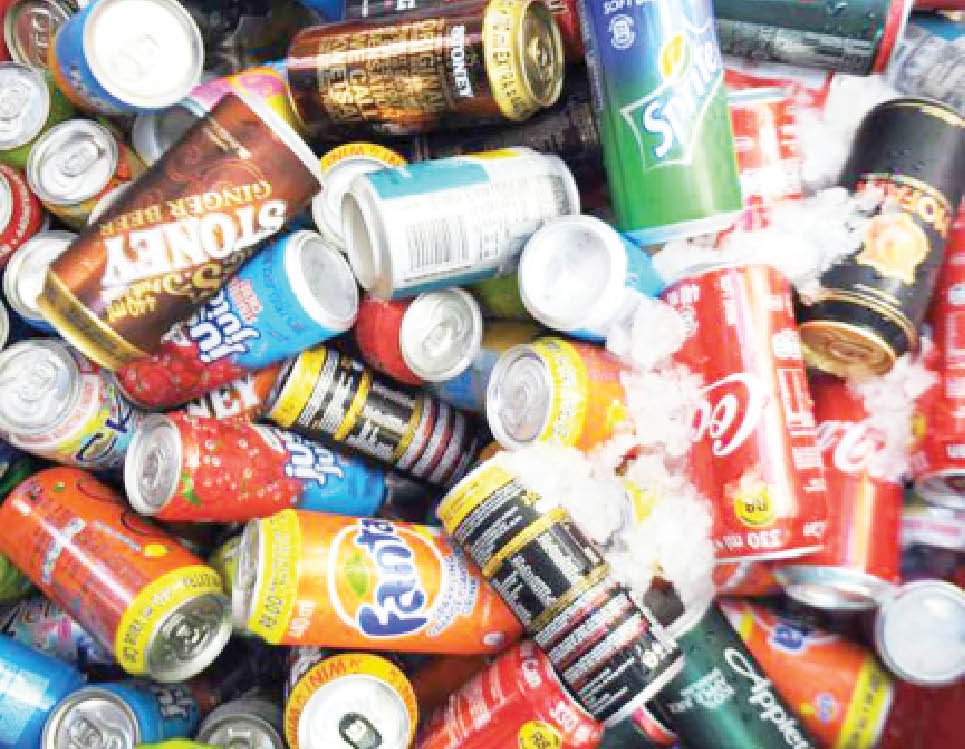Coalition moves for 20% tax on sugary drinks
The National Action on Sugar Reduction (NASR), a coalition of non-governmental organisations, has urged the Federal and State governments to place a 20 percent tax on sugary drinks and sugar-sweetened beverages in the country. This is as the coalition warned that the lack of excise duties on sugar-sweetened beverages (SSB) could lead to a spike […]

FILE PHOTO.
The National Action on Sugar Reduction (NASR), a coalition of non-governmental organisations, has urged the Federal and State governments to place a 20 percent tax on sugary drinks and sugar-sweetened beverages in the country.
This is as the coalition warned that the lack of excise duties on sugar-sweetened beverages (SSB) could lead to a spike in the already worsening occurrences of diabetes, obesity, tooth decay, cancer and stroke among others in the country.
It also urged the National Assembly to formulate a tax policy on Sugar-Sweetened beverages (SSBs) and foods in the country.
The coalition specifically urged the Minister of Finance to introduce an exercise duty of 20 percent on sugar-sweetened beverages such as carbonated sugary and energy drinks.
The Technical Advisor, NASR, Dr. Laz Ude Eze, who made the call during a webinar, said the call became necessary to discourage the consumption of sugar-sweetened beverages in the interest of the citizenry.
The virtual meeting was organised by Gatefield in partnership with the NASR, the coalition consisting of Nigeria Health Watch, Diabetes Association of Nigeria, Nigeria Cancer Society, and the Nutrition Society of Nigeria, on the dangers of SSBs.
The coalition noted that the consumption of sugar-sweetened beverages is associated with obesity and non-communicable diseases (NCDs) like type 2 diabetes, cardiovascular disease, dental caries, liver disease and up to 11 types of cancer.
It also said that Nigeria ranks the 4th highest soft drink consuming country in the world; with an estimated 3.9 million adults (20–79 years) are diagnosed with diabetes in Nigeria, thus making the country the highest prevalence on the African continent.
“The affordability of soft drinks contributes to high consumption in the country by the urban poor, who are often unable to bear the high costs of managing chronic diseases,” it said.
It said that while the sugar drinks and beverages sector are enjoying freedom from excise duties, more Nigerians, especially children, are consuming these drinks, thereby increasing their risk of obesity.
Also, a Co-Chair of the coalition and the Managing Director of the Nigeria Health Watch, Vivian Ihekweazu, said that SSB are unhealthy because its calories can get converted into fats in the body. It converts into fats, which leads to weight gain which contributes to obesity.
On her part, a member of the coalition, Omei Bongos, said, “Currently, there is no tax on sugar-sweetened beverages in Nigeria. As a matter of fact, the beverage industry does enjoy a bit of concession. At the moment, there is really no tax on sugar-sweetened beverages.
“We know that when we purchase services in Nigeria there is VAT for services and purchases, but we are speaking of a specific excise tax as has been implemented in South Africa and other countries like Mexico, and some States in the United States of America. This specific excise tax is not present in Nigeria.”
